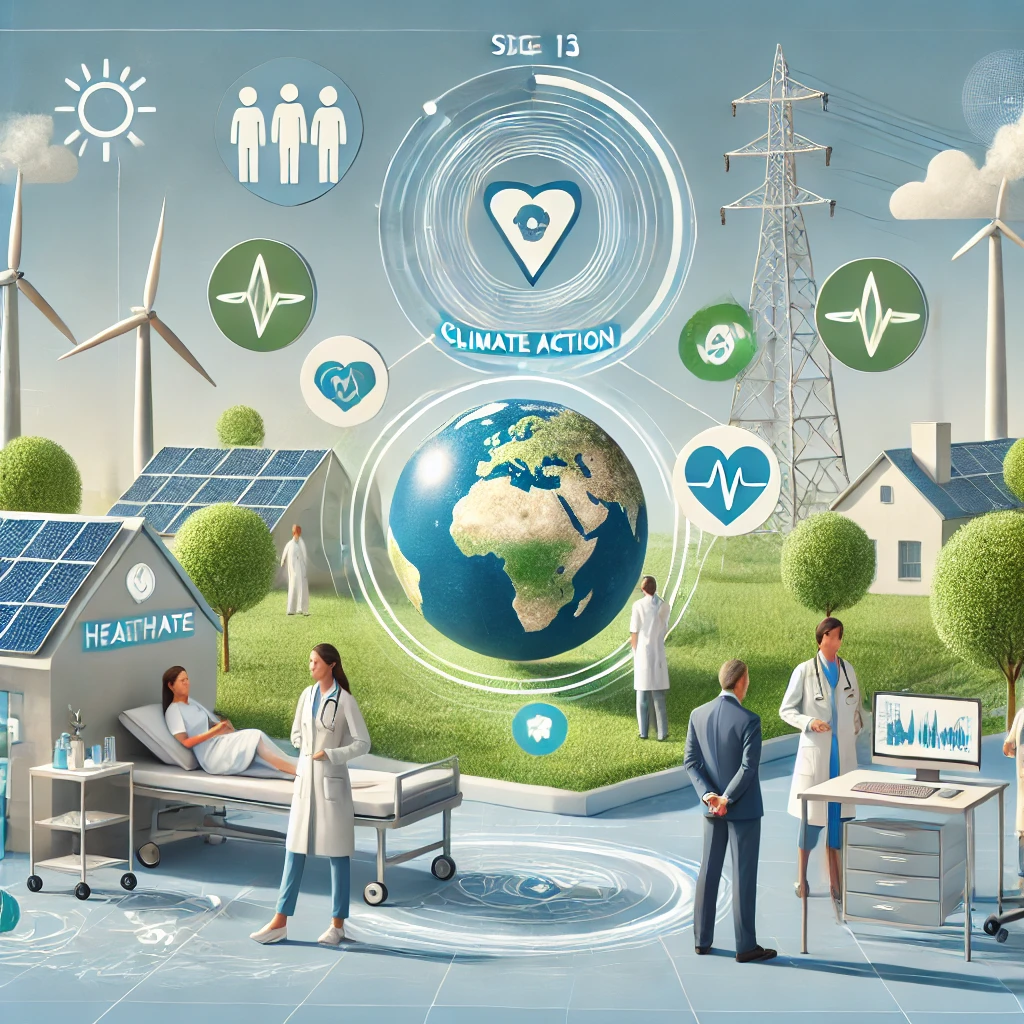Health
Health policy

2024-11-22 06:05
Senk
Climate Change and Healthcare: The Role of SDG 13
Climate change is one of the most significant challenges facing global health. The impacts are widespread, affecting air quality, food security, water resources, and the spread of infectious diseases. In this context, the Sustainable Development Goal (SDG) 13: Climate Action plays a crucial role in addressing the health consequences of climate change, as it calls for urgent action to combat climate change and its impacts.
The Connection Between Climate Change and Healthcare
Climate change affects human health in multiple ways, including increased risks of heat-related illnesses, respiratory conditions due to poor air quality, and vector-borne diseases like malaria and dengue fever, which are spread by changing weather patterns. Vulnerable populations, including low-income communities, the elderly, and children, face disproportionate health risks.
Healthcare systems themselves are also affected by climate change. Extreme weather events like floods, hurricanes, and wildfires can disrupt health services, damage infrastructure, and increase the burden of healthcare needs. Therefore, addressing climate change through SDG 13 is vital for building resilient healthcare systems that can cope with these growing challenges.
Global Actions under SDG 13
Several global initiatives are taking place to meet the targets of SDG 13, with a strong focus on protecting health from climate change:
1. Strengthening Health Systems: Countries are integrating climate change considerations into public health policies, focusing on climate-resilient health systems. This includes preparing healthcare infrastructure to withstand extreme weather events, developing early warning systems, and ensuring that health services can continue during emergencies. The World Health Organization (WHO) has emphasized the need for climate adaptation in health planning to protect vulnerable populations (WHO, 2023).
2. Promoting Low-Carbon Healthcare: The healthcare sector itself is a significant emitter of carbon. Efforts are underway to reduce its carbon footprint by transitioning to renewable energy sources in hospitals and clinics, reducing waste, and adopting sustainable practices. The Health Care Without Harm initiative is leading global efforts to promote a green healthcare system (Health Care Without Harm, 2023).
3. Global Frameworks and Partnerships: International agreements like the Paris Agreement aim to limit global temperature rise and ensure that climate action is also beneficial for public health. The Health and Climate Change Coalition works to align the goals of climate action with health improvement efforts, pushing for policies that support both the environment and human well-being (UNFCCC, 2023).
Conclusion
SDG 13, Climate Action, directly influences global health by mitigating the risks of climate change and promoting sustainable, climate-resilient healthcare systems. To safeguard public health, it is essential for countries to take concerted action in reducing emissions, building climate-resilient health infrastructure, and integrating climate change into healthcare policies. With continued global collaboration, the world can make progress in both mitigating climate change and protecting health for future generations.
247
Read
Leading academic platform that is exclusive
with medical publications and research
Health in Kurdistan, Iraq and the world
About
Sections
Latest News